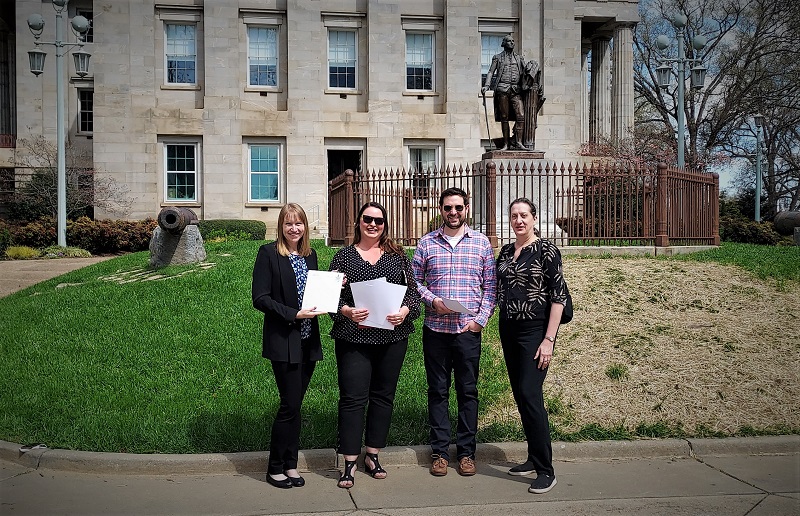North Carolina regulators are working on a process to join the Regional Greenhouse Gas Initiative (RGGI), a program in which multiple states are working together to cut carbon pollution.
But while the N.C. Department of Environmental Quality (DEQ) is rulemaking, climate change is moving ahead at an alarming speed, increasing its threats to our environment and all who live in it.
That's why the N.C. Sierra Club and eight allied organizations spearheaded a drive to ask Gov. Roy Cooper to push for swift action on joining RGGI (or "Reggie").
We explained last year how joining RGGI would help North Carolina accelerate its efforts to combat climate change by cutting greenhouse gas emissions in the power sector in a collaborative cap-and-trade program with RGGI's 11 current members: Connecticut, Delaware, Maine, Maryland, Massachusetts, New Hampshire, New Jersey, New York, Rhode Island, Vermont, and Virginia.
The General Assembly's 2021 energy bill, supported by Governor Cooper, sets ambitious targets to cut climate pollution from power plants over the next decade. RGGI membership would help North Carolina meet these goals by 2030.
At the start of 2022, the N.C. Sierra Club and our environmental allies asked our members and supporters to reach out to Governor Cooper and ask him to do whatever it takes to move RGGI membership to the top of the to-do list.
Nearly 2,500 people spoke up. About 430 Sierrans signed a petition that we delivered to Cooper's office on March 25. Three of our allies - CleanAIRE NC, Environment NC and E2 - forwarded more than 250 individual messages, while a joint phone bank by CleanAIRE NC and Environment North Carolina patched through another 1,800 callers who asked Cooper to help move North Carolina as fast as possible toward RGGI membership.
 [Pictured with our petition outside the N.C. State Capitol in Raleigh are Brooks Pearson, Legislative Counsel, Southern Environmental Law Center; Cassie Gavin, Senior Director of Government Relations, N.C. Sierra Club; Joel Porter, Policy Manager, CleanAIRE NC; and N.C. Sierra Club Communications Manager Margaret Lillard.]
[Pictured with our petition outside the N.C. State Capitol in Raleigh are Brooks Pearson, Legislative Counsel, Southern Environmental Law Center; Cassie Gavin, Senior Director of Government Relations, N.C. Sierra Club; Joel Porter, Policy Manager, CleanAIRE NC; and N.C. Sierra Club Communications Manager Margaret Lillard.]
Local leaders also stepped up, including seven current North Carolina mayors. Led by former Charlotte Mayor Jennifer Roberts, the seven signed a letter to Cooper, urging him "to fully support and advance the rulemaking approved by the Environmental Management Commission last summer to secure North Carolina’s participation in RGGI."
Roberts and current mayors Esther Manheimer of Asheville; Damon Seils, Carrboro; Pam Hemminger, Chapel Hill; Elaine O’Neal, Durham; Jennifer Weaver, Hillsborough; Cindy S. Perry of Pittsboro; and Salisbury's Karen Alexander wrote that they have "a responsibility to our cities, towns and counties -and to all the residents and businesses who reside in our communities - to take action."
"We are working to reduce emissions at the local level, but there is only so much we can do without complementary policies at the state level," the mayors wrote. "... RGGI is a ready-to-implement option that can begin contributing to the solution immediately."
North Carolinians and their leaders can see that our communities are already sustaining climate-related damage in the form of flooding, slower storms that drop more rain, rising sea levels in coastal communities, and warmer and more humid days and nights.
We must act, and our actions will be stronger when we're part of a team. We look forward to North Carolina's swift steps to join the Regional Greenhouse Gas Initiative.